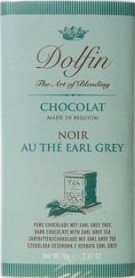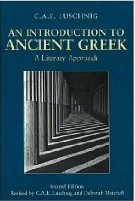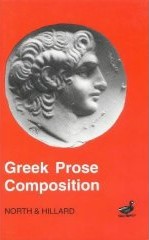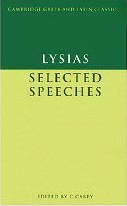My chocolate of choice:

Books read recently by J. Zimmerman
|
My chocolate of choice: 
|

|
Reader's Bill of Rights [after Daniel Pennac in Better than Life
from November 2003 Utne Magazine] includes the rights to:
 Skip pages Skip pages
 Not read Not read
 Not finish Not finish
 Not defend your tastes Not defend your tastes

|
|
T.S.Eliot:
'no verse is free for the man who wants to do a good job.' 'I have never been able to retain the names of feet and meters, or to pay the proper respect to the accepted rules of scansion.' Burton Raffel's (1984) How to Read a Poem, p. 247, quoting TSE without citations. |
{ December : juu-ni-gatsu (see also books on learning Japanese) 2015 }
(12.31.2015)
Kinsey Millhone encounters the good, the bad, and the evil. This was mediocre compared with most of her recent books: I miss the youthful rueful humor that was more abundant in earlier books. I was also felt overly schooled/lectured about the ethics and procedures of water conservation in desert country (a little is ok but there was just too much).
Books read in Sue Grafton's series include:
1982: A is for Alibi .
1985: B is for Burglar.
1986: C is for Corpse.
1987: D is for Deadbeat.
1988: E is for Evidence.
1989: F is for Fugitive:
also a favorite.
1990: G is for Gumshoe.
1991: H is for Homicide.
1992: I is for Innocent.
1993: J is for Judgment.
1994: K is for Killer.
1995: L is for Lawless.
1996: M is for Malice.
1998: N is for Noose.
1999: O is for Outlaw.
2001: P is for Peril.
2003: Q is for Quarry.
2004: R is for Ricochet.
2005: S is for Silence,
my favorite in the series so far, perhaps because of the liveliness of the characters.
2007: T is for Trespass,
one of her scariest books yet; becomes riveting.
2009: U is for Undertow,
a very satisfying book.
2011: V is for Vengeance,
very good.
2013: W is for Wasted,
very good: more cousins appear; drug trial shenanigans.
2013: Kinsey and Me.
2015: X,
the good, the bad, and the evil. Somehow this was unsatisfying, partly because the reader
was being schooled/lectured about the ethics and procedures of water conservation in desert country
(a little is ok but there was just too much). I miss the youthful rueful humor that was more
abundant in earlier books.
They continue with five advanced patterns, which are two-step processes. And finally there are two master patterns which tend to involve considerations about a row, a column, and a box.
Despite having many powerful goddesses, particularly Athene, the Theogony is dauntingly misanthropic in its view of human women.
This delightful and enthusiastic professor assures us that his students learn Anglo-Saxon (spoken in Britain 500 to 1200) within a few months, although they can learn Middle English (spoken 1200 to 1500) in three weeks.
He presents the Anglo-Saxon history, from 410 when the Romans left Britain through the Fall of Rome (476) until the Norman invasion of Britain in 1066. He covers not only the political and military events, but also the great events of literature (especially poetry) and of religion (particularly Christianity).
After an introduction to the 5th century when the Romano-British King Vortigern invited the Saxon warriors Hengist and Horsa to aid him against the Scots and the Picts, only for the Saxons to subsequently take over from Vortigern, Drought goes through a century-by-century mnemonic MCGVR (McGiver):
The first half of the 11th century was a period of "Anglo-Danish" rule, so perhaps the Danish Vikings had remained somewhat.
Contents:
Its first line in Field's translation can be compared with the first line in John Minford and Joseph S. M. Lau's Classical Chinese literature : an anthology of translations (2000), in which they are quoting a translation by David Hawkes:
| Field: | Hawkes as quoted by Minford and Lau: |
Of the beginning of old, Who spoke the tale? | Who passed down the story of the far-off, ancient beginning of things? |
 Fire in the Treetops: Celebrating Twenty-Five Years of
Haiku
in North America (2015)
edited by Michael Dylan Welch with sectional assistance from others.
Fire in the Treetops: Celebrating Twenty-Five Years of
Haiku
in North America (2015)
edited by Michael Dylan Welch with sectional assistance from others.
The Haiku North America meeting has been held on alternate (odd) years in locations in Canada and in the USA. Typically 50 to 90 poets participate and have one (rarely two) of their haiku assembled into an anthology of the conference. This book collects the poems from the 12 previous anthologies of the 24 previous years with those of the current year.
Began reading John Minford and Joseph S. M. Lau's Classical Chinese literature : an anthology of translations (2000). It has about 1200 pages, so 10 pages per day of this small-type book will mean 120 days.
|
The impact of climate change may be worse than previously thought ...
if emissions continue to grow at current rates, with no significant action taken by society,
then by 2100 global land temperatures will have increased by 7.9°C,
compared with 1750.
This finding lies at the very uppermost range of temperature rise as calculated by
the Intergovernmental Panel on Climate Change.
It also breaches the United Nations' safe limit of 2°C,
beyond which the UN says dangerous climate change can be expected.
Research at the University of Edinburgh first created a simple algorithm to determine the key factors shaping climate change and then estimated their likely impact on the world's land and ocean temperatures. This method is more direct and straightforward than that used by the IPCC, which used sophisticated, but more opaque, computer models. ... It accounted for atmospheric pollution effects that have been cooling Earth by reflecting sunlight into space, and for the slow response times of the ocean. |
The cover blurb includes:
| The stanza has for long been neglected by both prosodists and critical analysts. Prosodists, although providing us with the terminology for a discussion of poetic forms, have tended to isolate those forms from meaning. And structural poetics, while valuable in itself, has been preoccupied with meaning without considering the stanza as an essential aspect of this. Ernst Häublein sets out to bridge this gap by suggesting criteria for relating the stanza to poetic structure. He begins with an examination of the various definitions of the stanza by poets and critics from the sixteenth century onwards, in order to discover stanzaic aspects typical of certain periods and shifting attitudes toward the formal features of poetry. After describing the many forms of stanza used by poets from earliest times to the present day, he goes on to analyse the different strategies by which poets achieve stanzaic units of meaning, to evaluate the logical relationships between stanzas, and, finally, to assess their place and function as parts within the poetic whole. |
The book would have benefitted from an introductory or concluding paragraph to summarize each chapter, and free-standing definitions would have been welcome for his terms such as:
Delightful - highly recommended!
 NeuroTribes: the legacy of autism and the future of neurodiversity
(2015) by Steve Silberman.
NeuroTribes: the legacy of autism and the future of neurodiversity
(2015) by Steve Silberman.
Rather rambling and longwinded presentation of the appearance of autism and asperger's mainly in the current years but with ample information on its separate identification by Leo Kanner (USA) and Hans Asperger (Nazi-controlled Vienna) of people whose symptoms include: "social awkwardness, precocious abilities, and fascination with rules, laws, and schedules". Kanner saw autism as uncommon and an attribute of young children; he blamed its occurrence on parents who withheld interest and affection. Meanwhile Asperger saw autism as a common syndrome, appearing among young geniuses (which he emphasized in his Nazi environment) but also among average and below-average, and not being limited to the youngest children.
Silberman's focus is on anecdotes of people today, but he does cherry-pick geniuses from the past and describe behaviors that we might categorize as on the autistic spectrum. He shows that autism is not new, goes over data that debunks the false correlation of vaccination with autism, and advocates for viewing autism as a disability like deafness.
{ November : juu-ichi-gatsu (see also books on learning Japanese) 2015 }
(11.30.2015)
 Purity
(2015) by Jonathan Franzen.
Purity
(2015) by Jonathan Franzen.
A big book of loyalty and betrayal, missing and/or manipulative parents, missing children, secrets and their revelations. There were rather apt self-referential statements, including when the main protagonist (Pip/Purity, probably the childless Franzen's imagined version of what his own daughter could have been) reads her Dad's version version of the story and skips over the too-much-information icky sex bits. I'm with her, as Franzen probably imagined some of his readers would be!
The media have deconstructed the who's who: an over-rated 'major American novelist' Charles Blenheim as an aspect of Franzen; investigative journalist Tom Aberant as another aspect of Franzen; charismatic sociopath and leaker of secrets Andreas Wolf as an aspect of Franzen's deceased best friend David Foster Wallace; and so on. It says something about the weakness of the writing and plotting that I never read the book without such a decoder-map floating in virtual space just above it.
There are some laugh-out-loud moments, and some lovely descriptions of water-logged Felton and environs, but not enough of either or of good writing to slow me in my enthusiasm to complete this obligatory read.
 The Shepherd's Life: Title: modern dispatches from an ancient landscape
(2015) by James Rebanks.
The Shepherd's Life: Title: modern dispatches from an ancient landscape
(2015) by James Rebanks.
The life of a shepherd of the English Lakeland Herdwick sheep, told by a shepherd himself, who also works a couple of other jobs (one is as an 'expert advisor to UNESCO on sustainable tourism' he tells us) and oh by the way has (as he seems keep to re-tell us) a degree from Oxford University.
Handy to see his occasional definitions (and I would have liked more examples of the Lake District's northwest-England viking-influenced dialect):
 HI: Haiku International
(2015), No. 119.
HI: Haiku International
(2015), No. 119.
Haiku in English and Japanese from Haiku International Association.
Includes a haiku by moi.
 Eucalypt: A Tanka Journal (issue 19, 2015)
which includes a
tanka by J. Zimmerman.
Eucalypt: A Tanka Journal (issue 19, 2015)
which includes a
tanka by J. Zimmerman.
Favorites include
two tanka by Michael McClintock and one by Susan Constable.
Excellent specialty journal.
This issue includes one tanka by me.
 (2015)
Yuki Teikei's 2015 member's anthology,
The Plover and the Moonstone,
a collection of
haiku
and
haibun
and essays.
(2015)
Yuki Teikei's 2015 member's anthology,
The Plover and the Moonstone,
a collection of
haiku
and
haibun
and essays.
A lot of exuberant bad language supposedly in the service of novelizing people related to the December 3, 1976, invasion by seven machine-gun-armed gunmen of Bob Marley's home.
Different literary opinions than mine awarded A Brief History of Seven Killings: A Novel the 2015 Man Booker Prize.
A hundred and sixty-five translated poems are shown; separate sections have their original kanji and hiragana, while the romaji representation in a separate section indicates how the poems sound in Japanese. The editors' 23-page introduction illuminates the poems, while the 43 pages of Notes give context to the tanka individually.
Midaregami was published in 1901 and contained 399 tanka from which about 40% appear here. Examples include:
3 Across Gion To Kiyomizu Cherry blossoms brightened by the moon ... Beautiful Each face I meet this night! |
59 How I envy Our youthful boatman Singing On this spring river And thinking of the girl at last night's port |
74 Wrong again! I could have sworn That was his face — O, mischievous, You gods of love! |
104 A thousand lines Of black black hair All tangled, tangled — And tangled too My thoughts of love! |
Polk, the eleventh president, served one term, 1845-1849. He died (possibly from cholera, with a body much weakened by his overwork while in office) a few weeks after his term completed. From the blurb, "James K. Polk is considered one of the greatest American presidents. He won a war, doubled America's size, and empowered the executive branch — in just four years — against a contentious political backdrop. . . . He won tariff reductions and reestablished an independent treasury. Most notably, he greatly expanded American territory by bringing Texas into the Union, outfoxing Britain to obtain most of Oregon, and wrenching California and much of the southwest from Mexico."
 Ribbons (11:3, 2015),
excellent
tanka journal.
Ribbons (11:3, 2015),
excellent
tanka journal.
Includes two tanka by J. Zimmerman plus my article "A Tanka Prose Workshop".
Swatted out From everywhere else, The mosquitoes come here. [p.17] |
Insects on a bough Floating down the river, Still singing. [p.53] |
We human beings, Squirming about among The flowers that bloom. [p.74] |
Even on a small island, A man tilling the field, A lark singing above it. [p.80] |
Under the cherry-blossoms, None are Utter strangers. [p.90] |
Little garden at the gate, — Just the thing for you; This evening shower! [p.91] |
and to Nobuyuki Yuasa (from his 1960 translation of Issa's The Year of My Life) all the four-line translations such as:
Serenely poised, The frog sits And views The mountain. [p.60] |
{ October : juu-gatsu (see also books on learning Japanese) 2015 }
Also see:
After about 20%, skim read it. A self-indulgent partially moralistic man and his obsessions.
Other books by Haruki Murakami:
 Frogpond (38:3, 2015),
excellent
haiku journal.
Frogpond (38:3, 2015),
excellent
haiku journal.
Includes one haiku by J. Zimmerman plus my review of "Genjuan Haibun Contest Decorated Works 2012-2014" (2015) edited by Nobuyuki Yuasa and Stephen Henry Gill.
Thankfully Bloom retreats from his obsessional claim in his 1998 Shakespeare: The Invention of the Human, where he devoted almost all of his long chapter on Hamlet to a harangue that Shakespeare (and not Thomas Kyd or some other) was the author of "an earlier, missing play, the so-called Ur-Hamlet. . . Unfortunately, I became so concerned with matters of origin that I devoted far too much of a long chapter to them, and ruefully realized only later that most of what I thought and felt about Hamlet remained unsaid."
Always an enthusiastic speculator, on p.7-8 Bloom mutters:
| Is there an anxiety that Hamlet may actually be Claudius's son, since he cannot know for certain when what he regards as adultery and incest began between Claudius and Gertrude? His notorious hesitations at hacking down Claudius stem partly from the sheer magnitude of his consciousness, but they may also indicate a realistic doubt as to his paternity. |
As to the truthfulness of the ghost, which Hamlet surely does doubt (otherwise why does he have the players perform Hamlet's text modifying The Murder of Gonzago), on p.33 Bloom opines:
| It is doubtful that he thinks his father's spirit to be a devil, but he wants the play. [Bloom's italics.] |
About Ophelia, on p.44 Bloom consoles us with:
| Shakespeare's wisdom avoided the only fate for Ophelia that would have been more plangent than her death-in-water: marriage to Hamlet the Dane. |
About the relationship of Hamlet and his mother Gertrude, on p.54-55 Bloom announces (hedging his bets at the end with a question rather than a statement):
| Despite the urgings of Freud, and his hagiographer Ernest Jones, there are no traces of Oedipus in Hamlet. The Hamlet Complex is not incestuous but again theatrical. ... [In] the Hamlet Complex ... murderousness forms as large a component as does self-conscious theatricality. Or are the two components fused: should we speak of a murderous theatricalism? |
Bloom characterizes Hamlet on p.65 as:
| Hamlet is the most formidable ironist ever to walk upon a stage. |
and claims even more on p.87 with:
| Hamlet uniquely fuses apprehension and comprehension, and could be viewed as the hermetist Anthropos, or Man-God, come again. |
Bloom revisits this theme on p.137 with:
| As an archetype of the artist, Hamlet has been identified with a range of incarnations from Jesus Christ through William Shakespeare ... much of literature since the later eighteenth century emanates from strong misreadings of Hamlet. ... [continuing on p.144:] Hamlet, the genius of Western consciousness, ... never seems victimized by dramatic irony. ... [continuing on p.145:] I do not believe in his madness, the antic disposition of a great ironist ... there is a God within him. ... In the Hebrew Bible, David is a new kind of man, as is his descendant, Jesus, in the Greek New Testament. Hamlet marks a third newness, secularized and destructive. |
Bloom explains on p.91 what death means to Hamlet:
| For Hamlet himself, death is not tragic, but an apotheosis. |
Finally Bloom defines Hamlet on p.151 as "this tragic farce."
Bloom amuses himself greatly in his book, pronouncing and arguing with competitors in analysis of Hamlet. Some of his ideas may even be right.
The blurb includes: "We begin, Lamott says, by collecting the ripped shreds of our emotional and spiritual fabric and sewing them back together, one stitch at a time."
It's a satire on Hollywood and panic.
While I like several poems I had not seen quoted previously, I agree mostly with Angela Leuck's review in Ribbons (10, 1: Winter 2014 issue), where she comments: "Glancing through Mullen's book, it's difficult at first to recognize her three-line poems as tanka ... sprawling verse ... Almost all of her poems would be improved by editing out all of the unnecessary words and paring down phrases."
 Presence #52,
the haiku journal.
Presence #52,
the haiku journal.
Stuart Quine ("One-line haiku: A tongue-tip test") notes:
| In his essential essay, Haiku as Poetic Spell [Presence #41, 2010], Martin Lucas notes that the translation of Japanese haiku into English tended to concentrate on the conveying of content at the expense [formal] effects [including alliteration, assonance, and onomatopoeia]: a focus on what is said rather than how it is said. |
Includes two haiku by moi:
winter dusk the postman takes my final letter J. Zimmerman [p.43] |
measuring rosemary into garbanzo bean soup the young accountant J. Zimmerman [p.61] |
 2015: The new issue of HPNC's journal
Mariposa 33.
2015: The new issue of HPNC's journal
Mariposa 33.
Includes haiku by moi:
evening lake
my brother and I
row for home
J. Zimmerman
[p.13]
|
More at www.10daydetox.com/resources.
Useful toxicity questionnaire to get your "before Detox" baseline [pp. 6-7].
Advises to quit sugar: "We are all overdosed at an average of twenty-two teaspoons of sugar a day per person in America. Sugar lights up the pleasure center of the brain and releases dopamine, the 'feel-good' chemical. It works on the same part of the brain as cocaine or heroin, but it is much worse." [p. 31].
The diet is claimed [pp. 56-57] to:
The ten-day program has a different focus each day [pp. 57-58] to:
Detox your kitchen [p.98] by removing:
The supplies to gather [pp.99-104] include a lot of vitamins and minerals (for daily doses of 2K IU vit D/day, 1 mgm chromium (in combination with zinc, green tea catechins, etc),
After a chapter on what you will do each of the ten days, the book has a chapter for each day. And them all the recipes that you will need. Helpfully your lunch and dinner have a 'core' option (minimal fuss) and an 'adventure plan' (takes more time to prepare but also lets you spend more time in the re-programming of your food brain).
Also see:
Contents of
The Trustee's Legal Companion.
Also see:
Contents of
Make your own Living Trust.
Here are some of my favorites. They use the vertical one-word-per-line format that Lanoue adopts in his book, because (he writes): "Since many of his haiku are carefully ordered 'surprises' or revelations, I also try to respect as closely as possible the original order of images" [p.8] and "The more I read Japanese haiku, the more I am convinced that it is an art of step-by-step word accumulation as word builds on word into a single resonant compound" [p.10]:
the year's first rain a grass roof's first leak [p.15] |
walking across the hanging bridge butterfly [p.28] |
counting heads in a hot-tub butterfly [p.28] |
at my feet when did you get here? snail [p.35] |
in soup kettle in toilet summer moon [p.39] |
first winter rain the world drowns in haiku [p.81] |
 Read issue 35 (Autumn 2015) of Acorn.
Read issue 35 (Autumn 2015) of Acorn.
Includes a haiku by moi.
 in USA.
The Lewis Man (2015 in USA, 2012 in UK)
by Peter May.
in USA.
The Lewis Man (2015 in USA, 2012 in UK)
by Peter May.
Excellent detective-thriller set in Scotland's Outer Hebrides, mainly the Isle of Lewis. The characters are subtle and interesting, multi-layered people, a fair number of red herring, and a hint of more sequels. The rocky scenery of the Outer Hebrides plays an essential role throughout: "bog bursts!" — who knew! Like its predecessor, The Lewis Man, the new book has a strong concern for the vulnerability and the welfare of children. And thankfully this book's plot was lighter on the coincidences than The Lewis Man.
Books by Peter May read:
 Go Set a Watchman (2015 — though written in the 1950s)
by Harper Lee.
Go Set a Watchman (2015 — though written in the 1950s)
by Harper Lee.
I am so glad this book was finally published, despite the fashionable carping that it is not of the quality of her To Kill a Mockingbird and worries that Atticus Finch was an of-his-times racist.
The lecture-style parts are balanced by the comedy relief of the protagonist's recollections of her tom-boy youth.
 The Best American Poetry 2015.
The Best American Poetry 2015.
An ok issue this year.
Issues previously read:
Five long poems in 118 pages (thus averaging 23.6 pages per poem) and a 24-page essay. Reading of the poems is scaffolded by the poems being divided into sections of a page or so, and in the stanzas being usually only 2 or 3 or 4 lines long.
Further books released with Kondo-esque gratitude:
Released with Kondo-esque gratitude:
Further books released with Kondo-esque gratitude:
Failing and Flying Everyone forgets that Icarus also flew. It's the same when love comes to an end, or the marriage fails and people say they knew it was a mistake . . . How can they say the marriage failed? Like the people who came back from Provence (when it was Provence) and said it was pretty but the food was greasy. I believe Icarus was not failing as he fell, but just coming to the end of his triumph. [p.18] |
and:
Immaculate The brain is dead and the body is no longer infected by the spirit. Now it is just machines talking to the machine. Helping it back to its old, pure journey. [p.64] |
and:
Moreover We are given the trees so we can know what God looks like. And rivers so we might understand Him. . . We lose everything but make harvest of the consequence it was to us. Memory builds this kingdom from the fragments and approximation. We are gleaners who fill the barn for the winter that comes on. [p.65] |
Released with Kondo-esque gratitude:

|

|

|

|

|
Related pages:
 Books on Buddhism.
Books on Buddhism.
 Books on Learning Spanish.
Books on Learning Spanish.
 Poetry - Learn How to Write Your Own.
Poetry - Learn How to Write Your Own.
 Forests of California and Trees of the World.
Forests of California and Trees of the World.
|
|
Check our disclaimer.
Copyright © 2015-2016 by J. Zimmerman. |